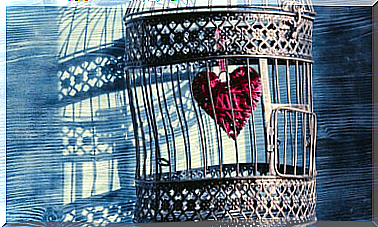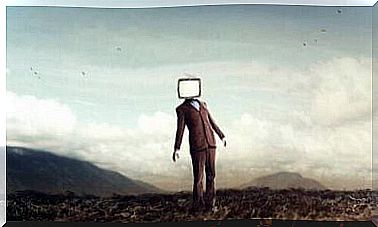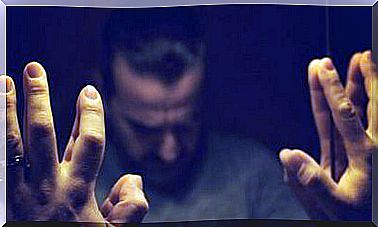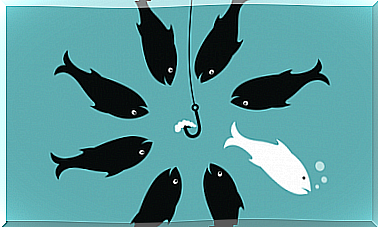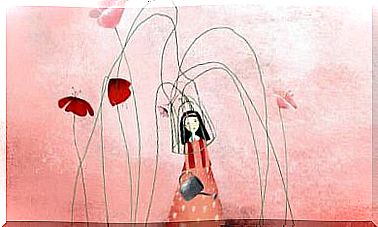5 Sensational Phrases By Kenzaburo Oé
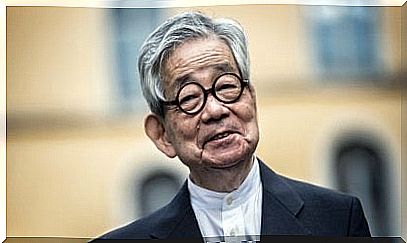
Many of Kenzaburo Oé’s sentences are a reflection of his personal tragedies and the terrible social events he witnessed. He is one of the most important and profound writers of the 20th century. Also one of the most read in the world.
Kenzaburo Oé was born in a small village in Japan. He came from a very humble family and his desire to progress led him to live in Tokyo, where he majored in Philosophy and Literature. He suffered a culture shock because his home village was so different from the big city he found. This led him to prepare his first texts.
Most of Kenzaburo Oé’s sentences are short and to the point. They have a humanist essence, with existentialist nuances. His style is agile and vigorous, with a great wealth of poetic images and deep reflections. These are some of his best-known claims.
1. One of Kenzaburo Oé’s quotes about fear
Fear appears several times in Kenzaburo Oé’s sentences, explicitly or implicitly. However, your goal is not to succumb to fear, but rather to reflect on it. This wonderful writer, Nobel Prize for Literature in 1994, also believes in the human being’s ability to free himself from himself.
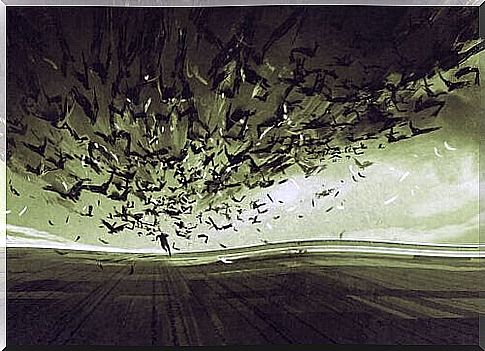
One of Kenzaburo Oé’s phrases that reflects this spirit says: “To control fear, you have to isolate it. And for that, you have to define your object precisely”. Great advice. Specifying what the object of fear is is one way to begin to overcome it.
2. The two faces of the world
One of Kenzaburo Oé’s quotes says: “When I want to look at our world with both eyes, what I perceive are two overlapping worlds: one bright and luminous, surprisingly sharp; the other, imprecise and subtly somber”.
This text reflects the ambiguity of existence, which is also the ambiguity of the human being. The duality that inhabits us: the good and the bad, the bright and the dark, the grand and the miserable… We face this paradox constantly throughout our lives.
3. The good writer
Kenzaburo Oé also reflected on many occasions on his own profession as a writer. In addition to being a vocation, writing is also a position in life. At the same time, it is a testimony, a therapy and a cultural exercise.
In this regard, he says: “A good writer must never settle down.” It refers to the fact that one of the engines that drives writing is precisely instability. Otherwise, there would basically be no reason to imagine other possible worlds through literature.

4. The ghost of the atomic bomb
One of the events that hit Kenzaburo Oé the most was the dropping of the atomic bomb on Hiroshima and Nagasaki. Not only because of the devastation it caused, but also because of the staggering amount of physical and psychological damage it left in the Japanese.
There are many sentences by Kenzaburo Oé devoted to this subject. One of them says, “The most important lesson of the Hiroshima drama is dignity.” It refers to the unshakable will of your people to rebuild the nation after this terrible event. The Japanese managed to scale themselves in light of the historical moment: first with surrender and then with reconstruction.
5. The act of lying
Kenzaburo Oé’s goal is not to moralize through his literature. He does not try to give moral lessons, nor does he intend to propose models of behavior. However, ethical questioning is at the base of all his novels and essays. This happens more as a reflection than an explicit approach or dogma.
One of his quotes says, “If you lie to get out of a problem, do it in a way that you don’t have to lie again when the truth is discovered.” As we see, he does not try to condemn the lie, but to point out its inconvenience. It is assumed that the truth comes to light and that, therefore, this fact must be taken into account when issuing a falsehood.
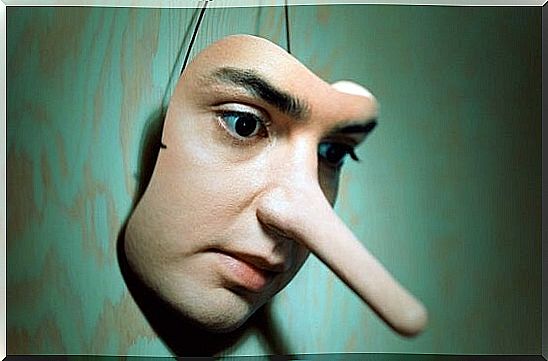
In addition to the atomic bomb, what most distressed Kenzaburo Oé was the fact that he had a son with an intellectual disability. This totally changed his life and also his literature. Maybe that’s why, when you read it, you have the impression that you’re facing someone who, for sure, dreamed of deciphering the meaning of the impossible.
